Most of us rely on an effective boiler system during the cold winter season to keep ourselves cozy and comfortable. It helps to prevent freezing temperatures from standing in the way of our work and daily routines. We count on our home’s heater and boiler to stay warm, from the middle of the winter to the chilly days of early spring.
No one can perform tasks efficiently when they’re freezing, whether in the workplace or at home. They are also helpful to schools and hospitals that depend on access to warm water. But, what is a boiler, and how does it keep us warm? How much does it benefit us?
What Is Boiler
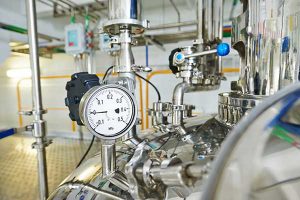 A boiler is a part of a house’s ambient heating, ventilation, and air conditioning (HVAC) systems. It is an appliance that warms up water to keep a room heated and sends the warmed water or steam across tubes and radiators. Industrial sectors use more significant and efficient boilers, not just for heating but also for generating steam to power equipment.
A boiler is a part of a house’s ambient heating, ventilation, and air conditioning (HVAC) systems. It is an appliance that warms up water to keep a room heated and sends the warmed water or steam across tubes and radiators. Industrial sectors use more significant and efficient boilers, not just for heating but also for generating steam to power equipment.
Technically, a boiler is a metal container of varying sizes that, by combustion, provides steam and hot water. Through a network of pipes, vapor or hot water then disperses all over your house, spreading heat to all areas. This system holds the temperature to near normal all through the house, including during the winter period.
The Difference Between Boilers and Furnaces
Many may confuse boilers with furnaces, but their similarity ends in providing warmth. The primary distinction between them is that they work in fundamentally different ways to provide temperature control during freezing conditions. A straightforward way of distinguishing them is to know that furnaces utilize air while boilers use water to disperse heat.
How Boiler Works
A boiler’s job is to generate either steam or hot water. It follows a particular process to provide heating for homes, business establishments, and industrial buildings.
Depending on the nature of your boiler, an energy source such as natural gas will ignite inside an enclosed chamber. This process heats the heat exchanger’s cables, and cold water moves via these tubes and gets warmer. What comes next varies depending on whether your household has steam heaters or water heaters.
Typically, heated water or steam circulates all across your home via heaters, where it emits warmth to heat the air. Vapor or water returns to your boiler while cooling, where it reheats and courses again to keep heating the house. It persists until reaching the specified temperature in your home and the thermostat calls for the boiler to shut off.
Different Boiler Types to Provide Genuine Heating
There are various types of boilers based on how they perform. While most use a similar standard approach of combusting and transmitting water through radiators and valves, each kind operates differently. Boilers also vary depending on their fuel sources, the heating form they deliver, and more categories.
Types of Boilers According to Medium
Boilers can come either as hot water or steam boilers. Steam boilers are most frequently preferred in industrial places, whereas hot water boilers are prevalent in business and residential areas. Both hot water and steam boilers utilize heat exchangers to heat water and deliver it to pipelines linked to heaters.
-
Hot Water Boilers for Quick Warming
Hot water boilers usually look like large metal tubes or tall drums, often placed in the laundry or cellar. Later versions include some fascinating elements, such as eliminating the tank in place of water-on-demand. However, the traditional, efficient, tanked design is still the most commonly used in the U.S. today, despite all modern styles.
Water boilers with storage tanks can operate on gas or electricity and typically have three tubes built for water flow. There is one to put cold water in, another one that carries hot water out and a flow check valve. If the tension or temperature reaches critical limits, the safety valve discharges water from the tank.
The key to boilers’ design is using thermodynamic ideas to achieve the challenging part of sorting cold from heated water. Water leaving the heater at the peak is always the hottest time as warm water rises over heavier, cold water. The heat pipe’s location at the top of the vessel handles the rest.
-
Steam Boilers Are Capable
The steam boiler is an old heating system going back at least two centuries, with older houses utilizing it more. Steam heaters function at a greater temperature, unlike hot water boilers. Because of that feature, they are generally less effective and are more complex to manage than their hot water counterparts.
A steam boiler works through an oxidation process by sparking a flame into pipes immersed in water. The heat produced in the reaction transfers to the water where the tubes are. The water evaporates into steam, which the boiler brings into pipelines for different heating usages.
The system transfers the vapor’s heat to the radiator and the rooms, liquefying and transforming the steam into water. The water flows back to the radiator through the return pipes, where it gets ready for the next reheating cycle. The process has also evaporated insoluble impurities, reducing the amount of necessary supplementary water and the requisite additives.
Boiler Types by Fuel Source
The type of fuel source that they utilize is also a foremost approach to distinguishing boilers. Various boilers use distinct energy sources to generate the heat that they spread throughout the house or building. It is also a significant influencing factor in deciding which kind of boiler a specific industry might use.
-
Electric Boilers Are Simple and Efficient
Residences and establishments in areas wherein oil and gas are not readily accessible use electric boilers. They generate heat in a moderately different manner from their natural gas counterparts. They utilize electricity in varying voltages rather than fuel combustion to heat components, which transfer heat to water.
Electric boilers don’t require large areas in the house because they don’t have a flue or pipelines run to them. In the water heating procedure, hardly any energy is lost, so electric boilers are entirely efficient most of the time. The convenience of the framework and the installation method implies that the entire installation cost is less than most boilers.
Electric boilers are not as prominent as gas boilers, and that is because of their apparent downsides. Even though you have a highly effective structure, the expense of heating with electricity is much more significant. They are a convenient, simple-to-install option, but there will always be cheaper ways to warm the household for many.
-
Natural Gas Boiler for Popular and Cheap Heating
Gas boilers utilize either a pilot lamp or an electric starter to spark fuel and oxygen inside a combustion chamber. This chamber is a secure and protected compartment where the gas burns to generate heat. That flaming gas heats the heat exchanger- a copper tubing network that sends the heat to water.
A natural gas boiler produces hot water to tap all across the home and heaters in the heating system. Gas is productive and reliable, and newer condensing boilers possess large radiators accumulating and using almost all the produced heat. This trait makes this kind of boiler extraordinarily efficient and more popular than others.
There are three primary kinds of gas boilers, and they come in various sizes or outputs: system, heat-only, and combi. Gas boilers’ costs do not shift much like oil’s, and they are even more convenient than electricity in many places. Relative to heaters of other kinds, servicing and additional running costs for the equipment itself is also inexpensive.
-
Oil Boilers Offers Options
An oil boiler operates in a manner highly identical to a gas boiler; however, the former requires a storage tank. The combustion chamber ignites the fuel, which for this equipment is oil, and a heat exchanger heats cold water. It will then use the hot water in your heaters, faucets, and showers to supply your home with heating.
Oil boilers allow for fast yet even burning of oil and the availability of options- either recycled or bio-diesel oil. However, oil boilers are not as environmentally as gas burners, and their effectiveness generally depends on the model. While both fuel prices tend to change quickly, it is usually more costly to utilize oil boilers than gas boilers.
Other Reliable Boiler Types
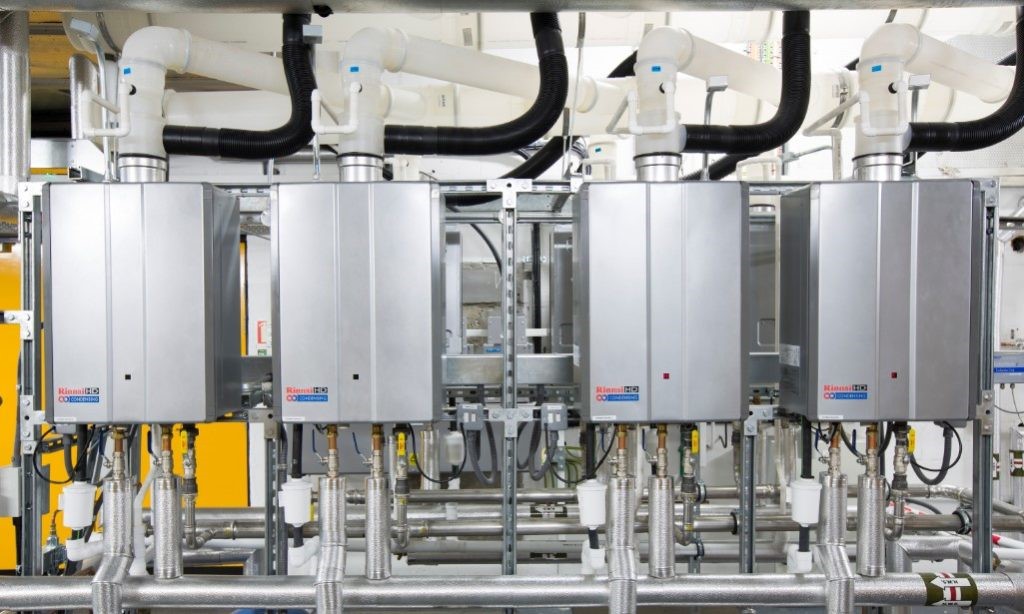 Aside from the boilers under the categories mentioned above, some boilers’ types don’t necessarily fit under them. Here are some of the more commonly known types of boiler systems for residential and commercial use:
Aside from the boilers under the categories mentioned above, some boilers’ types don’t necessarily fit under them. Here are some of the more commonly known types of boiler systems for residential and commercial use:
-
Condensing Boilers Are Highly Effective
A condensing boiler can operate on either gas or oil and, by design, can enhance resource and cost-effectiveness. It accomplishes this by turning water vapor moisture into heat and retrieving some of the lost heat from flue gases. The disparity between a condensing boiler and a non-condensing boiler is the usable heat generated, contributing to high overall efficiency.
As the boiler burns fuel, it processes heat from the burner into a heat exchanger where the hot air circulates. The vapor remains there until necessary, boosting the temperature, and then the boiler drives the heat away from your radiators. While the hot air cools, the heat also passes by a secondary condensing field, resulting in droplets gathered and discarded.
You can equip a condensing boiler with any system that initially had a standard boiler installation to improve performance. In the process, it lets you save money by recycling heat and lowering your energy bills. Also, condensing boilers are easy to conceal and don’t need too much room from your property.
-
Combi Boilers Are the Most Economical
For most households, combination boilers are likely the most economical residential boilers. They regulate both water and central heating, and their sustainability renders them the eco-friendly homeowners’ preferred system. It doesn’t require a water container or tank, freeing some space in your house and significantly reducing the installation time.
Combi boilers are highly efficient because they instantaneously warm the water rather than heating the whole water tank. They also have check valves, which function in separate directions based on whether you need water or heating. It means that they can’t deliver both simultaneously- even operating two showers at the same time isn’t possible.
Additionally, combination boilers distribute hot water at the main pressure, ensuring an intense shower without a dedicated pump. They are also much less complicated than conventional boilers, making installations inexpensive and more reliable. Combi boilers’ commercial success also means plenty of trained boiler engineers can expertly fix and handle them.
-
System Boilers Are Convenient for Larger Usage
A system boiler might be ideal for larger residences or buildings with more than one bath or shower room. By using an extra hot water repository cylinder, they can deliver heating and heated water when needed. And since it integrated the systems’ main components into the boiler itself, it makes installation simpler and faster.
A newly installed system boiler will lead to significant savings on your power bills, particularly when replacing an old boiler. System boilers utilize a broad cylinder of stored water that requires an insulation cover to ensure optimum heat retention. They enable the distribution of hot water to several outlets, such as taps and showers, simultaneously while preventing reduced pressure.
Although a cold water storage tank is unnecessary, system boilers generally consume more space than combination boilers. The cylinder’s capacity also determines the volume of hot water you can store- at times, hot water can get empty. Before delivering hot water anew, the system boiler will need to heat more water and refill the container again.
-
Conventional Boilers for Easy Upgrades
Conventional boilers– also identified as regular, traditional, or heat-only boilers– consist of both a cylinder and a water supply tank. They are suitable for houses with an existing heating system connected to a different hot water cylinder. They are also perfect for homes where many individuals require hot water simultaneously most of the time.
These boilers need cold and hot water tanks for storing, both of which are usually in the loft areas. The heat exchanger heats water when the fuel ignites, then transfers heated water by a pump to the tank. It then delivers this processed hot water to your showers, faucets, and radiators when you require it.
Like system boilers, the volume of hot water you can use from conventional boilers will depend on your tank’s size. Standard boilers can also cost more to operate and repair since they can be pricey. However, they are viable with solar heaters, so you can reduce your carbon emissions and save on energy costs.
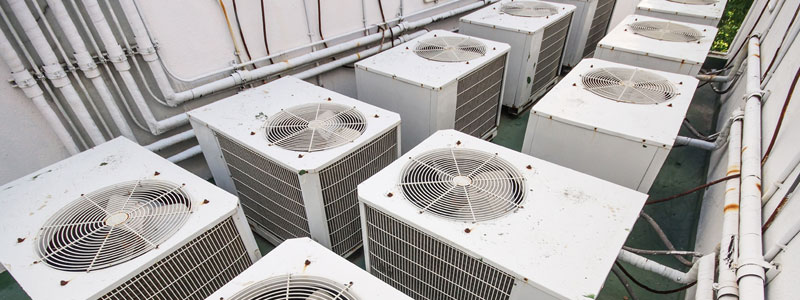
Get the Perfect Boiler for Your Home
Ensuring you choose the best boiler for your particular requirements can keep you pleasant while leaving your energy bills down. Numerous variables go into determining the perfect boiler, so it is necessary to decide what can match your home. However, it can ultimately vary according to the kind of energy source you want to use or your home’s capacity.
If you are uncertain about which boiler you want, it is best to have a competent professional help you decide. Boiler companies can assist you in determining the ideal heating system for your home and area. They are also experts in boiler installation, so you can expect the whole process to be quick, smooth, and reliable.
Boilers are an excellent solution for efficiently heating your home and keeping you warm all winter, whichever kind you prefer. Contact a boiler specialist in your area to get the perfect boiler and installation for your home’s heating needs.
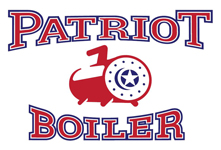
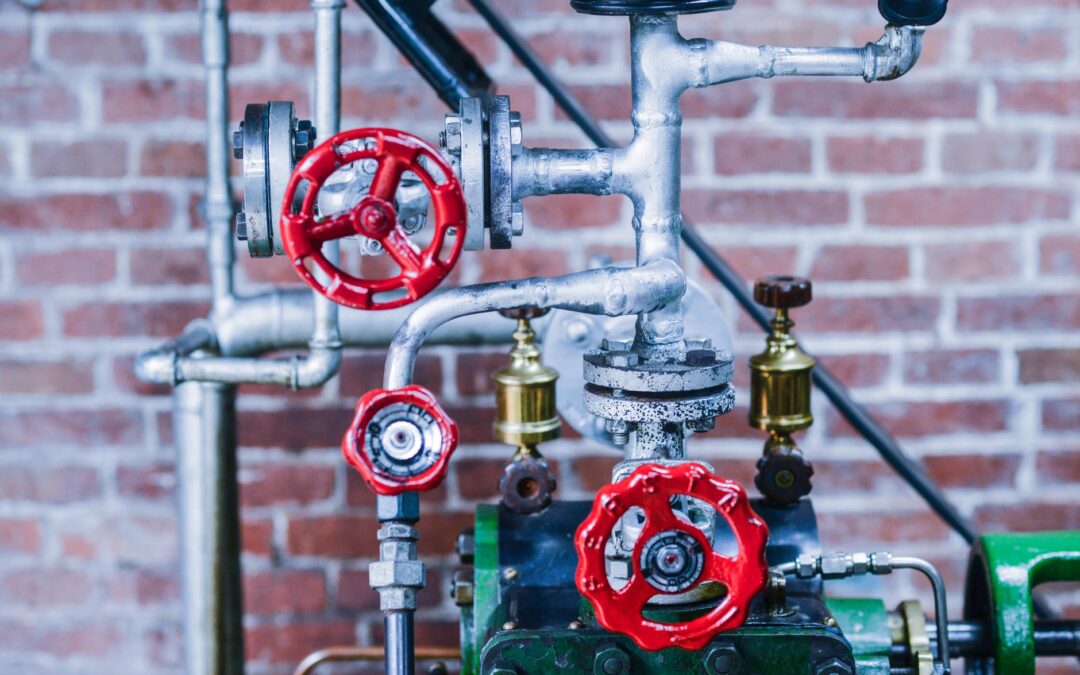
Recent Comments